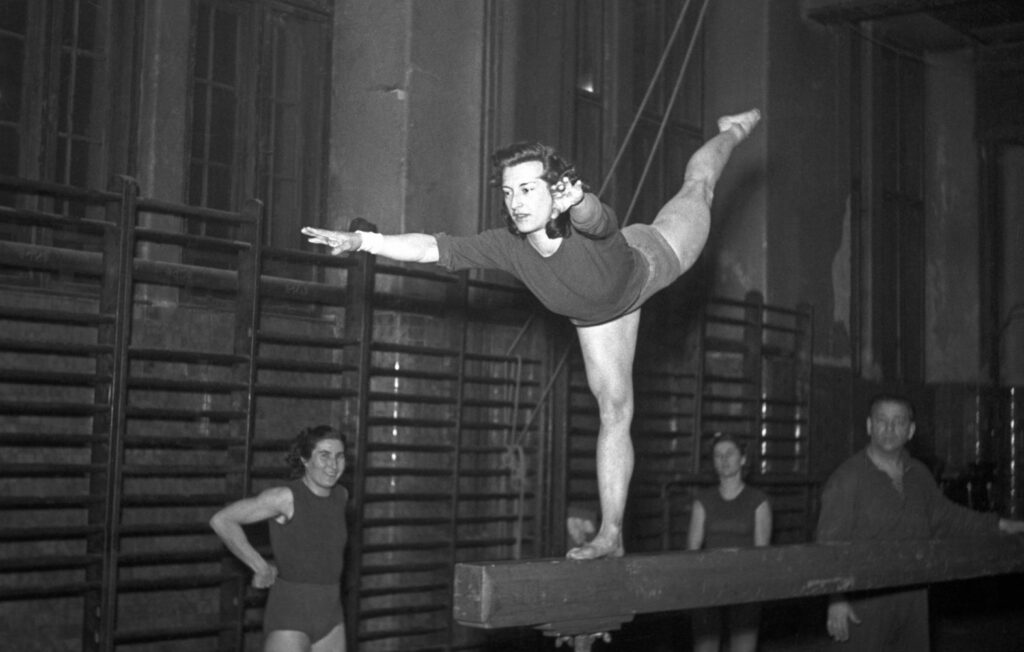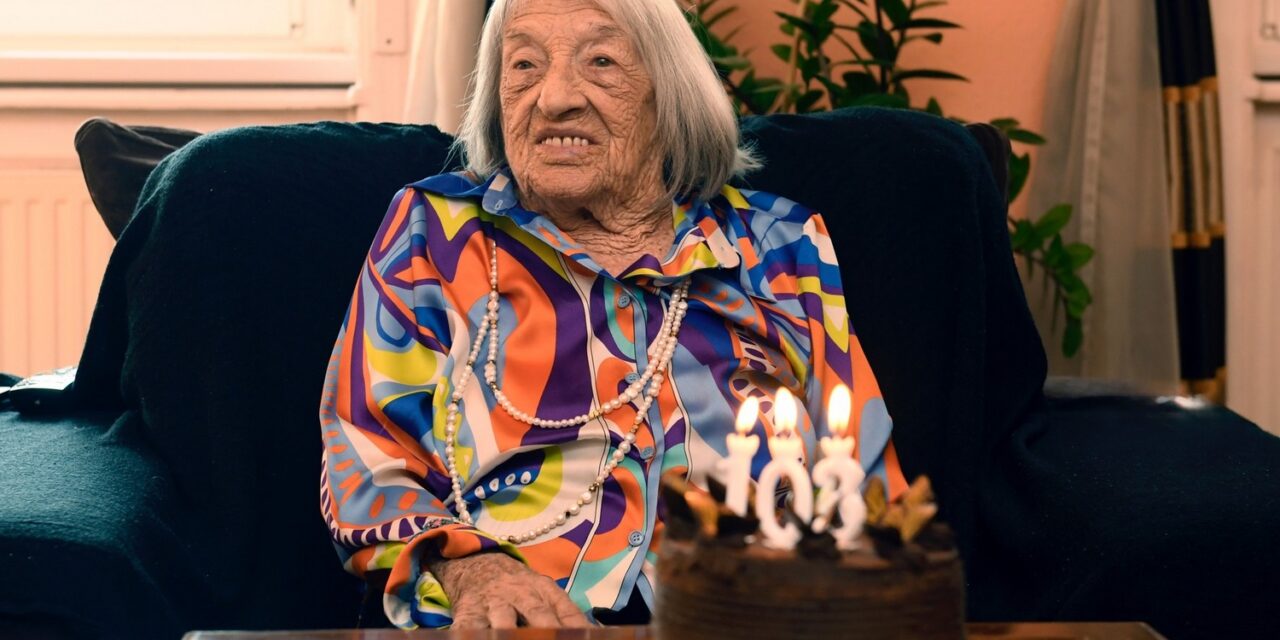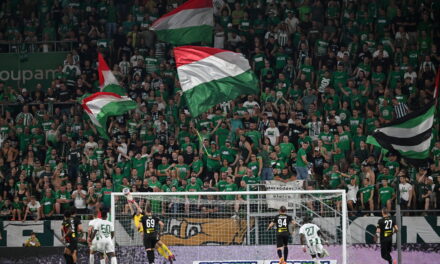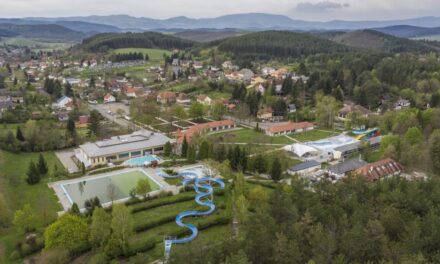Five-time Olympic champion gymnast Ágnes Keleti, the Athlete of the Nation, Hungary's female athlete with the most Olympic medals, who is the world's oldest living and also the world's oldest pentathlon gold medalist, celebrates her 103rd birthday on Tuesday.
She was born as Ágnes Klein on January 9, 1921 in Budapest, the family later changed to Keleti Hungarian. From 1937, Ágnes Keleti played sports in the Budapest Fencing and Athletics Club, and from 1938 in the National Gymnastics Association. He became a member of the national team in 1939 and won his first Hungarian championship in 1940, but due to his Jewish origin he was banned from all sports activities that year. He managed to get through the end of World War II, the period after the German occupation of Hungary on March 19, 1944, with false papers under a pseudonym in Szalkszentmárton, where he maintained his stamina by running. His father and several family members died in the Auschwitz concentration camp, his mother and brother were rescued from Budapest by the Swedish diplomat Raoul Wallenberg.
After the Second World War, he appeared in the colors of Budapesti Postás, TF DISZ from 1950 and TF Haladás, and Budapesti Dózsa between 1954 and 1956. In the meantime, he graduated from the College of Physical Education, where he became a teacher. Between 1947 and 1956, he was a 46-time Hungarian champion in various sports, including a ten-time individual composite Hungarian champion and a seven-time team champion. He won the eternal champion title, no one has won the gymnastics championship in Hungary more than him. In 1949, he won four gold medals, one silver and one bronze medal each at the World College Championships. At the 1954 World Championships in Rome, he won both on the half barrier and with the apparatus team, and also collected a silver and a bronze medal.
In 1948, he made it to the London Olympics, but was unable to participate in the games because, unfortunately, he suffered a torn ankle ligament during one of the last training sessions. Four years later, at the Olympic Games in Helsinki, he was able to show what he was capable of. At that time, he was already thirty-one years old - most gymnasts at that age have long since finished their careers.
In Helsinki, he won a gold medal with his freestyle exercise (today: floor), a silver medal in the all-around team, a bronze medal in the half-bar and as a member of the apparatus team. He reached the peak of his career in Melbourne in 1956: he defended his title on floor, won gold on beam, half beam and as a member of the apparatus team composed of Andrea Bodó, Ágnes Keleti, Alíz Kertész, Margit Korondi, Erzsébet Köteles, and Olga Tass, won silver medals in individual all-around and team . She became the most successful competitor of the games, as well as the oldest gymnast to win a gold medal.

Ágnes Keleti before the 1952 Helsinki Olympics (MTI Photo/Hungarian Photo: József Szécsényi)
With ten Olympic medals and five gold medals, Ágnes Keleti is second behind Aladár Gerevich (10/7) in the ranking of the most successful Hungarian athletes of all time, and she is also the Hungarian female athlete with the most Olympic medals and the most successful Hungarian gymnast.
He did not return home from the Melbourne Olympics. He settled in Israel in 1957, married a Hungarian there, and had two sons. He came home for the first time after the regime change. He took a decisive role in the creation of Israeli gymnastics, he was the national team captain of the Israeli national team between 1958 and 1980, during which he prepared the Italian national team for the 1960 Olympics. Between 1957 and 1980, he was the head teacher of the gymnastics department at the Israeli College of Physical Education (Wingate Institute). He considered the development of school physical education to be his main task, and for this purpose he set the goal of creating a higher standard of teacher training. Between 1983 and 1988, he worked as a coach of the gymnastics department of Maccabi Tel-Aviv and then of the Raanai Gymnastics Club. He also worked as an international judge, only choosing to retire at the age of 75.
In 1949, he was awarded the gold degree of the Hungarian Sports Merit Medal, in 1951, the fifth degree of the Order of Merit of the Hungarian People's Republic and the title of Outstanding Athlete of the Hungarian People's Republic, and in 1954 he was awarded the title of Merited Athlete of the Hungarian People's Republic. Since 1981, he has been a member of the Jewish Sports Hall of Fame (International Jewish Sports Hall of Fame). In 1995, he received a MOB Olympic gold ring, in 2002 he was elected to the Hall of Fame by the International Gymnastics Federation (FIG), in 2003 he was awarded the MOB Medal of Merit, and in 2004 he received the title of Sportsman of the Nation.
In 2005, he immortalized his handprint and signature on the Wall of Hungarian Sports Stars, in 2008 he was included among the Immortals of Hungarian Gymnastics, in 2011 he received the Hungarian Gymnastics Award, the Presidential Medal of Merit and the MOB commemorative plaque, in 2015 the Prima Primissima award, in 2019 the Pro Urbe Budapest Award . In 2017, he received Israel's most prestigious award, the Israel Prize, and in 2020 he became an honorary citizen of Újpest. Member of the 20-member Immortals Club, founded in 1991. In 2022, he was awarded the Central Cross of the Hungarian Order of Merit with a Star.
He recalled his eventful life in the book Three Lives of an Olympic Champion, published in 2002. The book Keleti 100 "Because I love to live" about his life was published the year before last, in which 36 of his former sports teammates speak about him from home and abroad, and a commemorative stamp was also made for the important anniversary. Last year, a portrait-documentary film about her life was shown under the title "Who Overcame Time - Ágnes Keleti".
Ágnes Keleti formulated her philosophy of life as follows: "One feels what suits him and should only do things that he likes. The most important thing in the world is to be loved."
On September 8, 2023, Ágnes Keleti joined Sándor Tarics, the water polo player who died in 2016 at the age of 102 years and 241 days, on the list of longest-lived Olympic champions.
MTI
Cover photo: MOB-Média/Péter Szalmás












